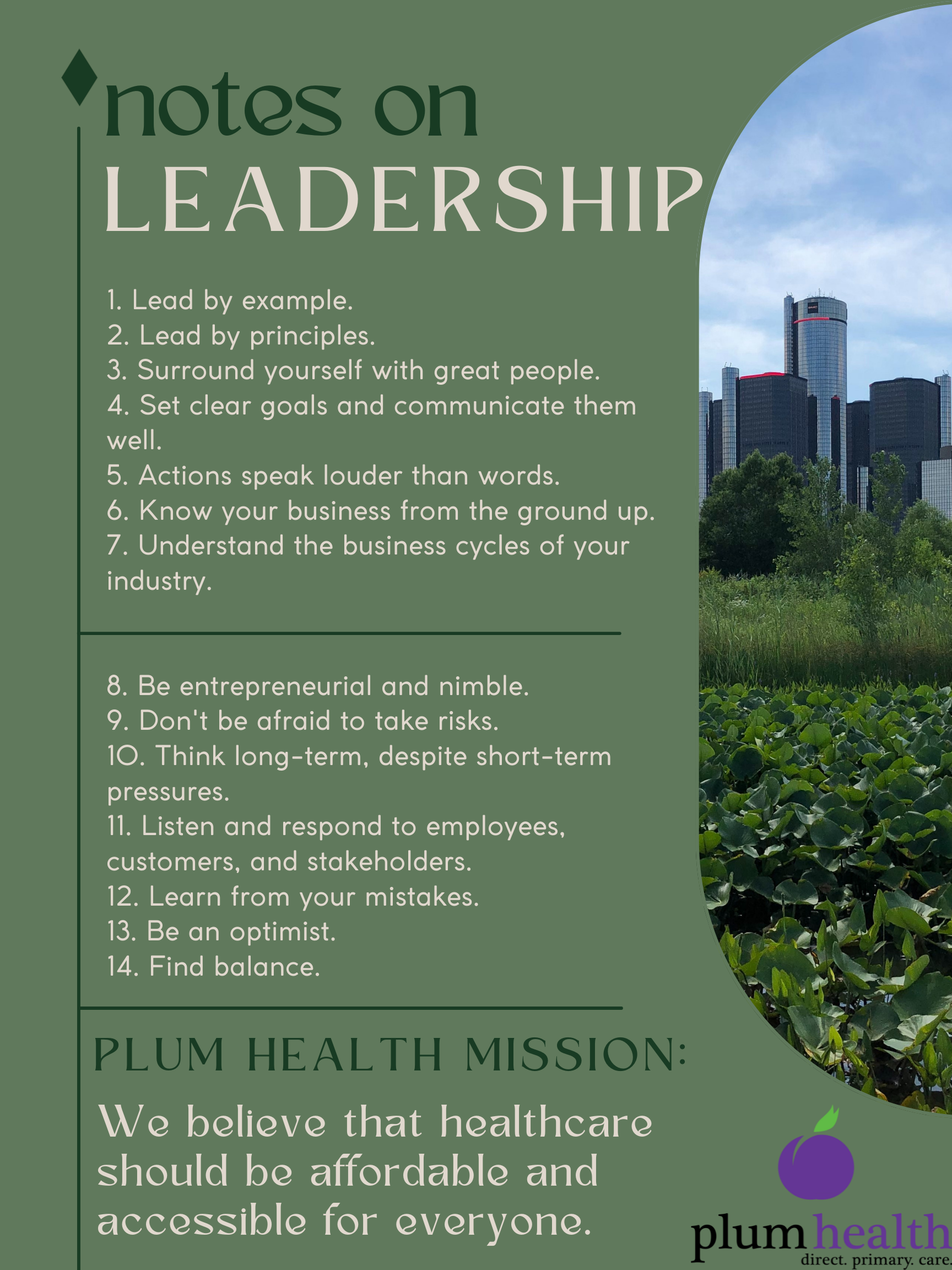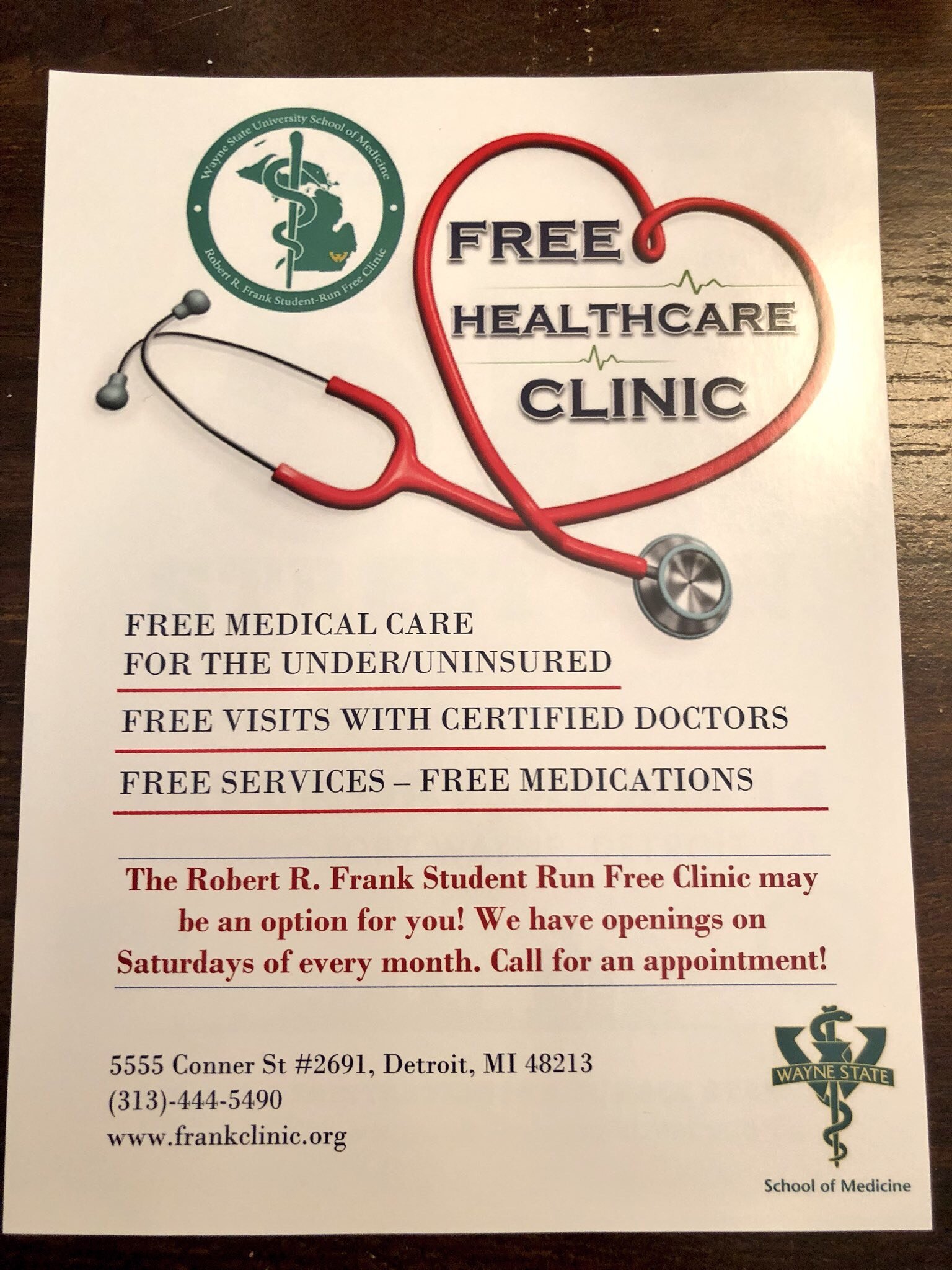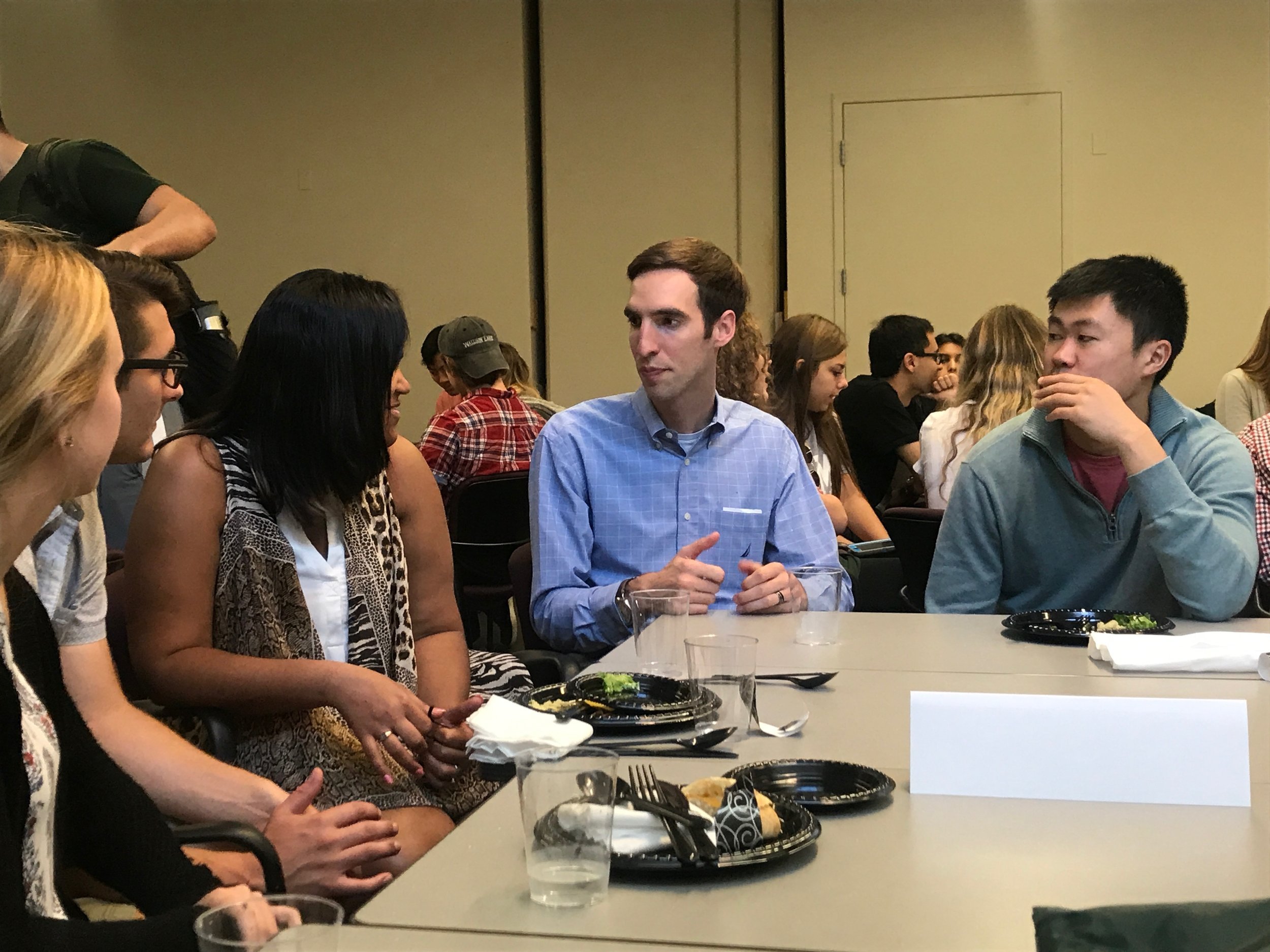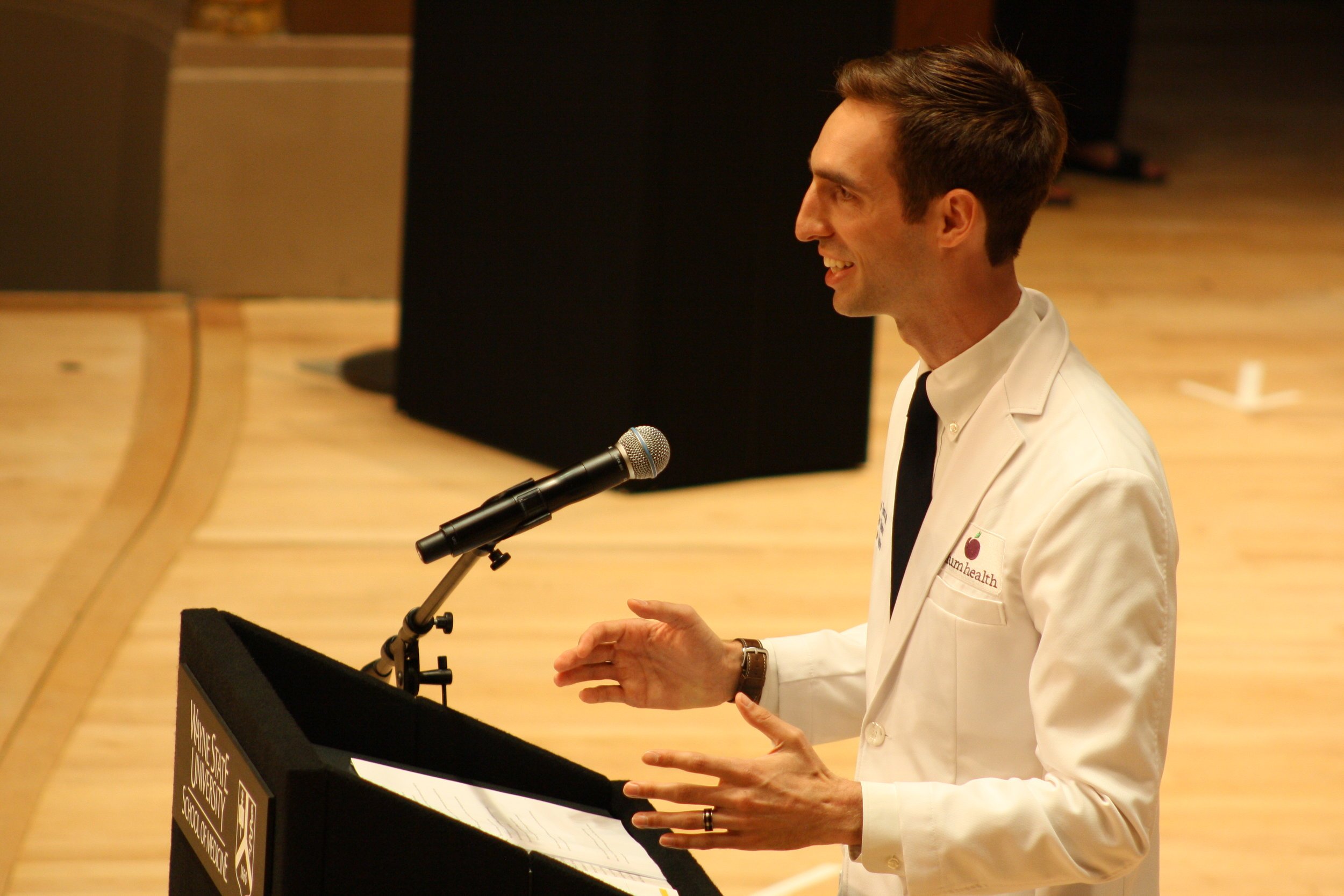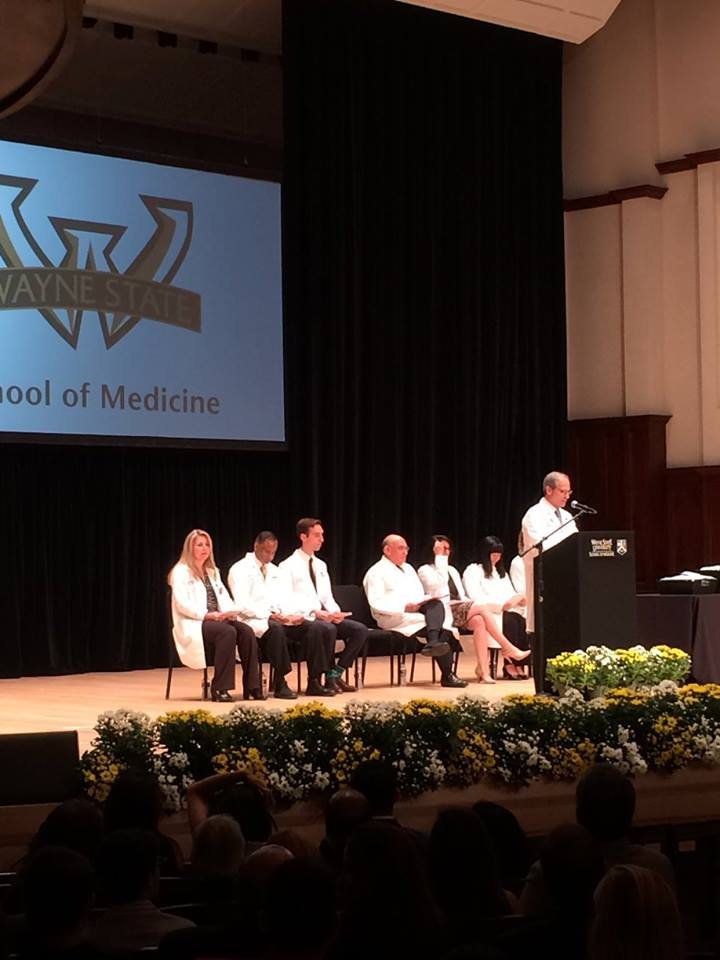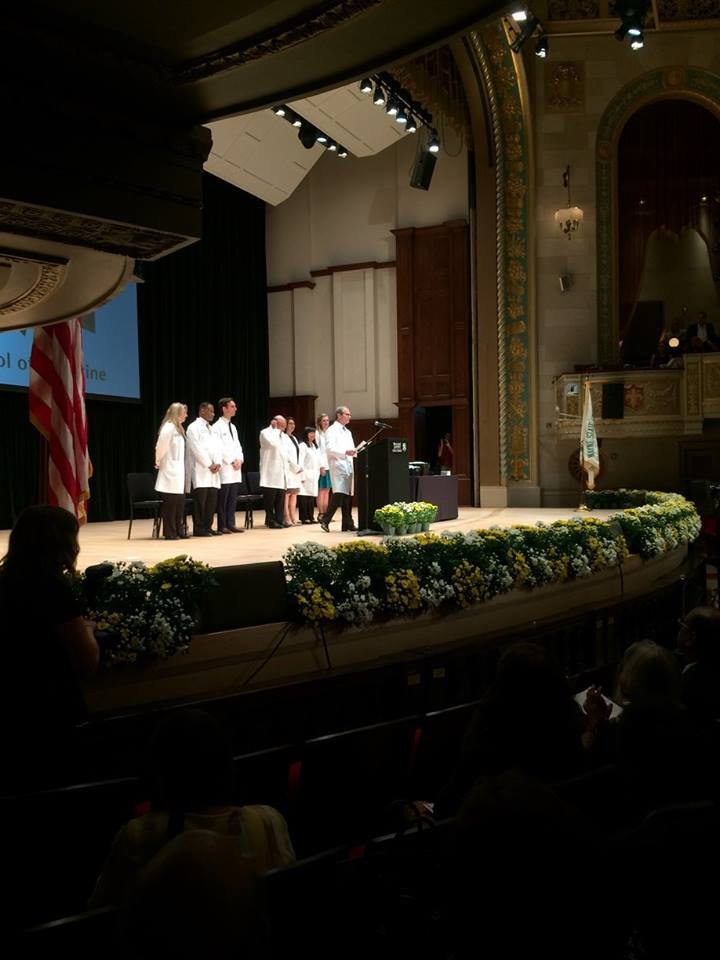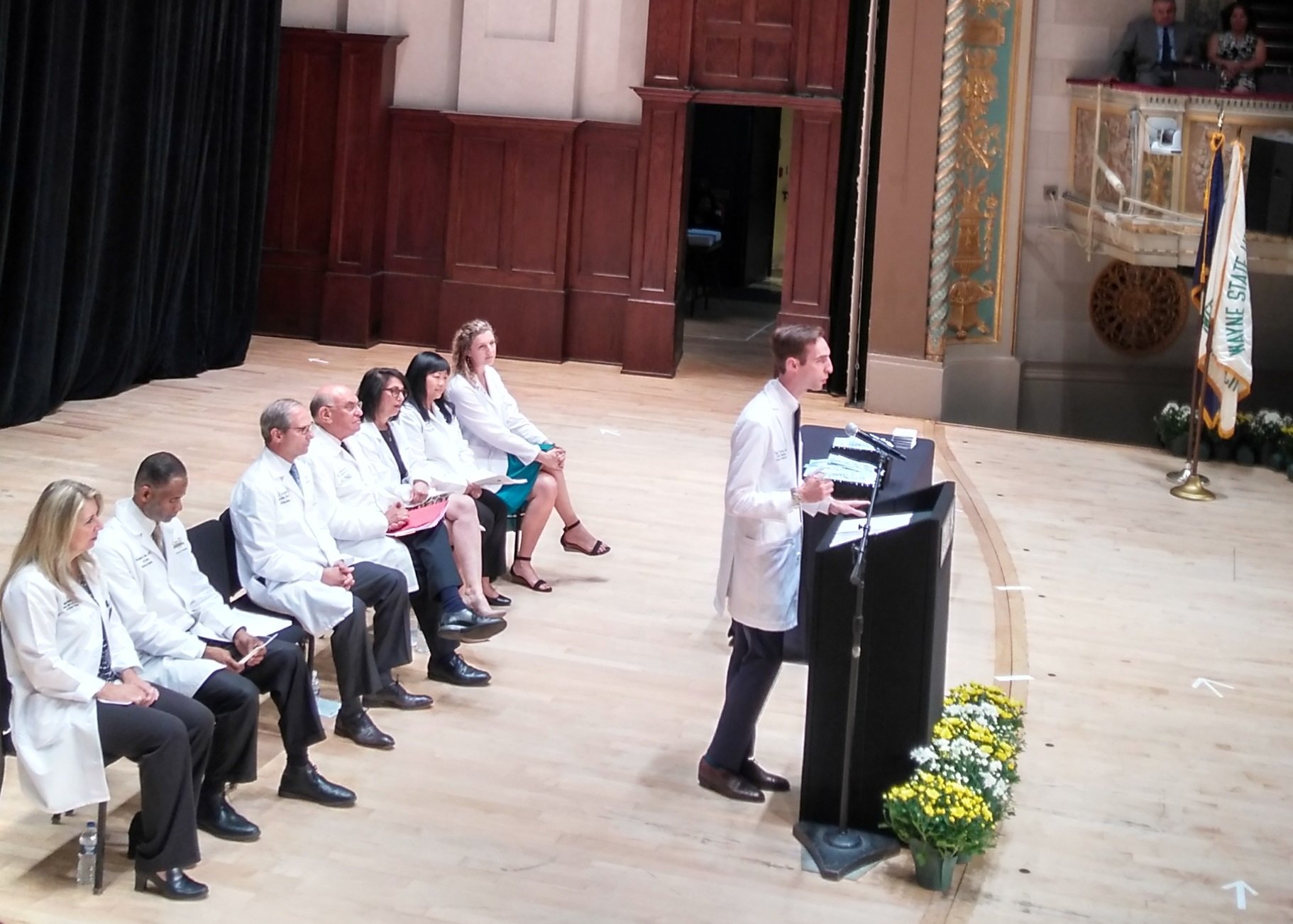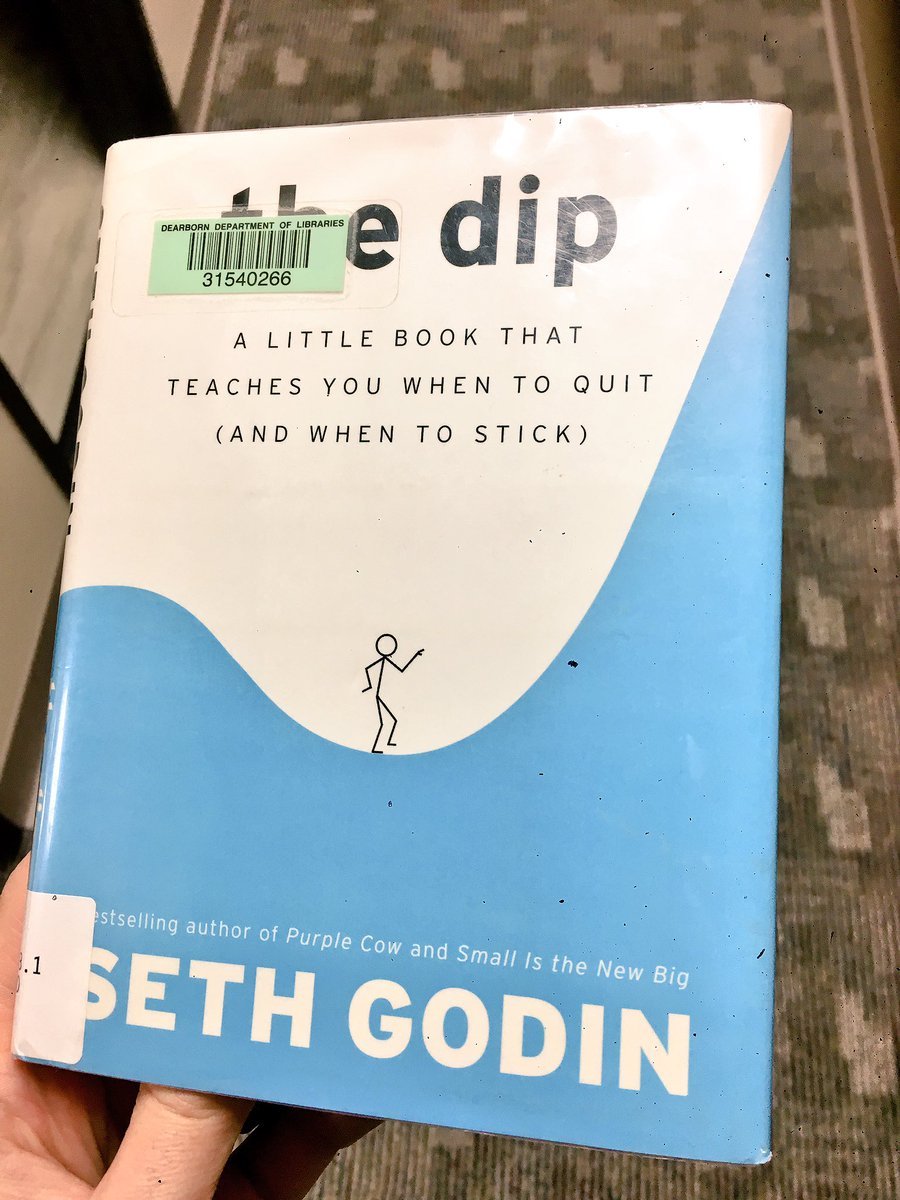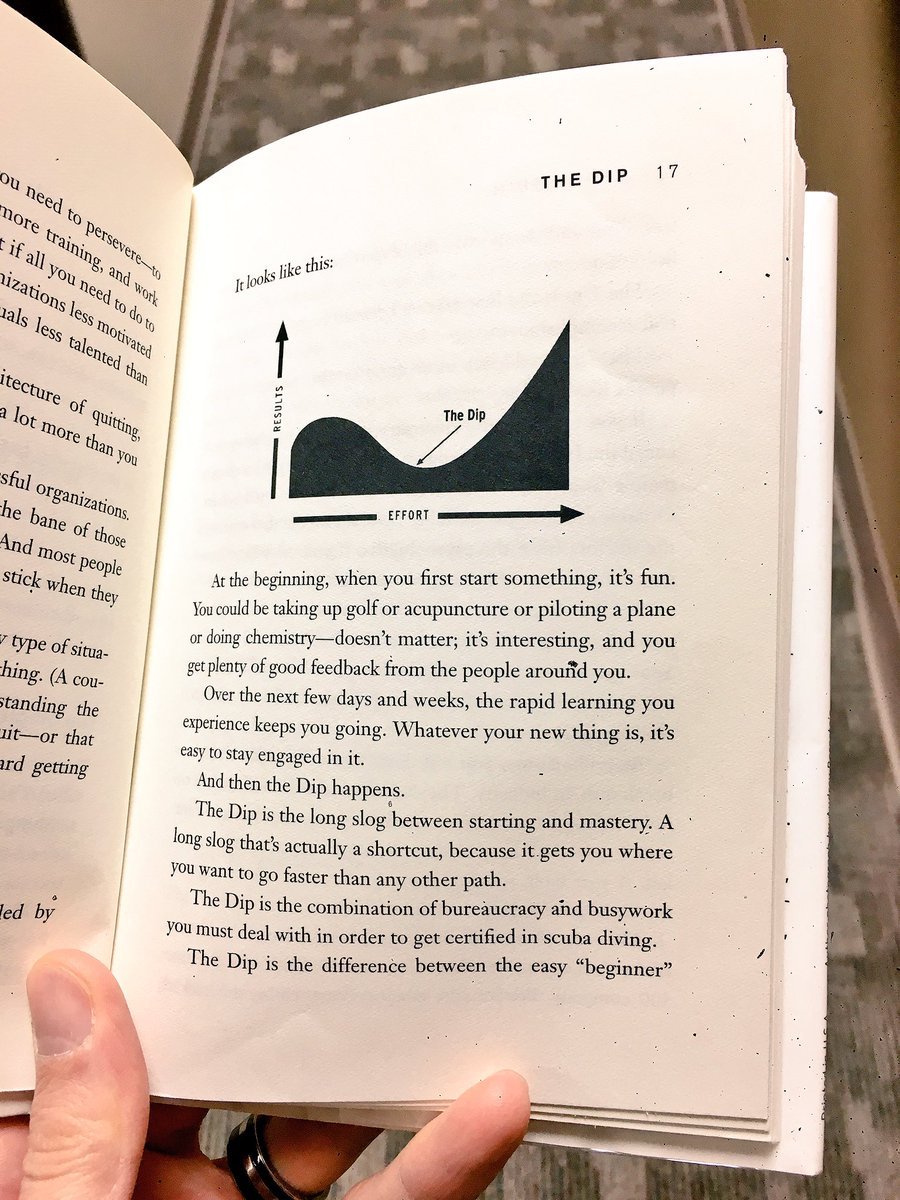Plum Health Blog
Appreciation Post for Dr. George Costea
When I was 17 years old, I started volunteering at Cass Clinic, associated with the Cass United Methodist Church. This was about 2004, and it was a life changing experience. As a high school student, I got to work with and learn from medical students at Wayne State University School of Medicine as they took care of patients who were uninsured, underinsured, homeless, and elderly folks who couldn’t drive to another clinic.
After each patient encounter, we would give a presentation to Dr. Costea, who waited patiently for us to share the important clinical information, and who helped guide our management and care with an in-house pharmacy, dispensing blood pressure medications and diabetes medications alongside clinical pearls and clinical wisdom.
We were able to take care of about 30 to 50 patients each day, working in teams of 2 or 3 students, and seeing one patient at a time. We got to spend 30 minutes to an hour with each patient, and listen to their stories. They allowed us to learn from them with otoscopes, blood pressure cuffs, our stethoscopes, and an index card medical record system as many patients returned each week or each month.
From this experience, I knew that I wanted to become a doctor, not just any doctor, but a doctor like Dr. George Costea. Dr. Costea seemed to be infinitely knowledgable about every medication stocked in that backroom pharmacy, he was unendingly patient, and faced difficult situations in the clinic with unmatched equanimity.
When I eventually finished college and made it into Wayne State University School of Medicine, I continued to volunteer at the Cass Clinic, to serve the patients there and to learn from Dr. Costea. When it came time in my third year of medical school to rotate through a family medicine office, I had the privilege of rotating through Dr. Costea’s family medicine practice.
To say that my experiences working with and learning from Dr. Costea shaped me and shaped my career in medicine would be a gross understatement. His presence at the Cass Clinic is the single biggest reason that I had the opportunity to make it into medical school and to become a physician. Further, his model for care inspired me to start Plum Health.
Unfortunately, Dr. Costea passed away on September 19th, 2022.
Dr. Costea worked with hundreds or maybe even thousands of pre-medical students and medical students as they served patients in the Cass Corridor. He started the clinic in the early 1980’s as a part of the free health care movement, and volunteered just about every Saturday for more than 40 years. Dr. Costea’s example - his care, his selflessness, his humility, his patience, and his willingness to teach - will stay with me forever.
Thank you Dr. Costea!
-Paul Thomas, MD
Dr. George Costea at the Cass Clinic in Midtown Detroit.
From Wayne State University School of Medicine:
George Costea, D.O., founder of the Cass Clinic and attending physician for more than 40 years, died Sept. 19. Dr. Costea dedicated nearly every Saturday morning since the early 1980s to providing free health care to Detroit's poor and underserved. Dr. Costea taught hundreds of Wayne State University School of Medicine students during those years and demonstrated selflessness and commitment to serving the community. Cass Clinic is in need of physicians interested in volunteering their time. If you are interested in participating or need more information, please contact Rob Sherwin, M.D. at rsherwin@dmc.org.
Leadership at Plum Health DPC
I have this grainy copy of a photo of a document above my desk that serves as a reminder about leadership and how I operate my business at Plum Health DPC. I look at it every day, and it helps me focus on how I conduct myself to create a successful organization. I thought I’d share it with you today!
Notes on Leadership, a reminder to myself:
1. Lead by example.
2. Lead by principles.
3. Surround yourself with great people.
4. Set clear goals and communicate them well.
5. Actions speak louder than words.
6. Know your business from the ground up.
7. Understand the business cycles of your industry.
8. Be entrepreneurial and nimble.
9. Don't be afraid to take risks.
10. Think long-term, despite short-term pressures.
11. Listen and respond to employees, customers, and stakeholders.
12. Learn from your mistakes.
13. Be an optimist.
14. Find balance.
Notes on Leadership at Plum Health DPC
Wayne State University School of Medicine History Presentation
Our video has been posted online! I had the opportunity to present the history of Wayne State University School of Medicine, and it is now available as a YouTube video. Check it out, below.
Thanks for reading and watching!
- Dr. Paul Thomas with Plum Health DPC
Detroit Medical Students Run a Free Medical Clinic
For the last 6 years I've been volunteering at a free medical clinic on Detroit's East Side called the Robert R. Frank Student Run Free Clinic or the SRFC. The SRFC services Detroit residents who are uninsured, and as their name implies, it is run by medical students.
Last night we had a stakeholders meeting and I am continually impressed by these medical students and their diligence, commitment, and compassion.
If you'd like to help these students serve more uninsured Detroit citizens, you can donate here, participate in their upcoming 5K, or participate in their upcoming Golf Outing (date TBD).
Don't Further Entrench an Already Broken System
Dear Congressional Representatives, Leaders in the AAFP, and all of those concerned with improving the health of Americans,
I’ve recently become aware of a part of the Alexander-Murray health reform bill that is concerning for the Direct Primary Care (DPC) movement, my practice and the patients that I care for in Southwest Detroit.
The bill includes a provision that mandates all High Deductible Health Plans cover an allotted primary care benefit. As written currently, the Alexander-Murray bill will cover “3 office visits per year” but many organizations, including the American Academy of Family Physicians (AAFP), are pushing to expand that.
While this may sound like a nice perk for patients, it only further traps patients and their primary care doctors in a broken system that undervalues primary care. It reinforces the notion that government and insurance companies must micromanage our dollars and decisions.
Forcing patients to pre-pay for a “primary care benefit” with no out-of-pocket costs will have a few detrimental effects. First, it will almost certainly increase the up-front costs of already skyrocketing health insurance plans. It will also dissuade patients from taking a proactive approach to managing their own health and health care, instead pushing them to be managed by an insurance plan or government programs. Finally, this pre-paid primary care benefit will discourage people from joining Direct Primary Care Practices, a promising practice model that is already achieving the quadruple aim: improving population health, increasing patient satisfaction, reducing per-capita health care spending, and improving physician and staff satisfaction while practicing medicine.
Furthermore, the Alexander-Murray bill fails to address the Health Savings Account (HSA) issue with regards to Direct Primary Care membership fees, something that my DPC doctor colleagues and I have been advocating for over the last few years.
My recommendation at this time would be to advocate for the Primary Care Enhancement Act (SB 1358), which would address the above HSA issue and not further entrench an already broken primary care delivery model.
In closing, Direct Primary Care is an innovative health care delivery model that has promise for achieving the quadruple aim on a nationwide basis. There are nearly 1,000 primary care doctors already practicing or on the cusp of engaging in this model. This is an opportunity to help us grow this DPC movement, to help us better serve our patients in this innovative way, and to potentially heal a broken primary care system in America. Help us reach our goal.
Thank you for your time and consideration,
- Dr. Paul Thomas, MD with Plum Health DPC in Detroit, Michigan
Mentoring Students at Wayne State University School of Medicine
Part of my mission, part of the "why" behind what I do, is to educate medical students and inspire them to choose a career in primary care specialties. Primary care doctors have the greatest impact on their communities, have the most tools at their disposal, and are most able to bend the cost curve in the health care ecosystem.
As a part of that mission, I spend a good amount of time interacting with medical students at Wayne State University School of Medicine (WSUSOM). This week, I took part in two different events at WSUSOM. The first was a mentoring session for first year students and the second was a mock interview session for the fourth year students.
For the first year students, it's an opportunity to get to know each other, learn from each other, and to be a resource. For the fourth year students, it's an opportunity to help them polish their interviewing skills as they prepare for the next step in their careers - residency!
This next generation of doctors will face significant changes and challenges in the health care system - from greater automation, to precision medicine, to even Artificial Intelligence. I hope that I can be a part of the foundation along with their formal education at WSUSOM that sets them on the right path to success in medicine.
Thanks for reading, and have a beautiful day,
- Dr. Paul Thomas with Plum Health DPC
Why It's Important to Have a Family Medicine Doctor in Detroit
Today I had the pleasure of speaking with Keith White of the Cancer Awareness Resource Network. We talked over the phone about his organization, the work we're doing with Plum Health, and the potential that we have to serve folks with cancer in Detroit and beyond.
Keith has had an amazing and inspiring journey. To read about him, check out what he wrote on his "about us"page. One thing Keith realized, though, is that even if folks have great health insurance, they may still have really high co-pays for doctor's visits and medications. He reached out to see what Plum Health could offer those with cancer and those in remission in his network.
Simply put, we can offer the best primary care experience in Detroit. What that means is that you have a Family Medicine Doctor or a Primary Care Doctor who is truly your advocate. I take my role seriously, and I will advocate for your health and wellbeing, your family and your finances while you confront cancer. How do we do this?
First, I focus on you and take a wholistic approach to your care. I have more time to spend with you, to get to know you and understand where you're coming from, what you're dealing with, and where you want to go with your life and your health. As your family doc, I will make sure that you're taking the right medications, that you are getting the right screening tests, and keeping up with treatment.
Second, I take care of folks in the context of their families and their communities. If there are emotional or familial stressors, we can talk about those and look for solutions together.
Third, I watch out for the financial wellbeing of my patients. This means that I make my prices clear and understandable, I don't charge co-pays for visits, and I give my members medications at wholesale prices.
Cancer and its treatment are hard enough, so when facing these difficulties, you want a primary care doctor who knows you well and who can advocate on your behalf.
Thanks for reading, and have a wonderful day,
Dr. Paul Thomas with Plum Health
The current look of our Plum Health Direct Primary Care office in Detroit, Michigan
Wayne State White Coat Ceremony Speech
The White Coat Ceremony, a New Tradition
The annual White Coat Ceremony is a relatively new tradition at medical schools across the country. In order to convey the virtues of the profession - compassion, altruism, duty, honor, respect, and responsibility - Dr. Arnold P. Gold created the event.
The first White Coat Ceremony was held at the Columbia University College of Physicians and Surgeons in New York in 1993. Dr. Gold believed that students should declare their commitment to the profession and the virtues therein at the beginning of their medical school journey, rather than at the end.
Now, 97% of medical schools have a White Coat Ceremony. The Ceremony gives a clear set of guidelines for these doctors-in-training to follow, and students are able to accept the obligations of the profession and commit to upholding the high standards that come with the title of "doctor".
The Declaration of Commitment
I solemnly pledge myself to consecrate my life to the service of humanity;
I will give to my teachers the respect and gratitude which is their due;
I will develop my skills with conscience and dignity;
The health of my patients and myself will be my first considerations;
I will respect those things that are confided in me;
I will maintain by all the means in my power the honour and the noble traditions of the medical profession;
My colleagues will be my comrades;
I will not permit considerations of religion, nationality, race, party politics, sexual orientation, or social standings to intervene between my duty, my peers, and my patients;
I will maintain the utmost respect for human life and I will not use my medical knowledge contrary to law;
I make these promises solemnly, freely and upon my honour.
My Speech
First of all, it was a tremendous honor to be selected as the Keynote Speaker for the Wayne State University School of Medicine White Coat Ceremony for the Class of 2021. When I received the phone call to be the speaker, I was nearly speechless and unsure of my ability to live up to the expectations that come with this role. I needed 24 hours to think on the offer.
After talking it over with my wife, I decided that this was something that I could do, and that I had a lot to say about the opportunity before these students and the medical profession in general.
When I was getting ready for medical school, I read several books. I was to be the first doctor in my family and I had a limited perspective on the medical field, i.e. I had no idea what I was getting myself into.
One of the authors that stuck with me was Atul Gawande, a surgeon and writer out of Boston. He wrote about the appealing aspects of a career in Medicine: autonomy, complexity, and a direct relationship between effort and reward.
However, something was missing. For me, that something is happiness. You see, doctors struggle with professional burnout, substance abuse, and suicide. We can speculate about why, but I think it's some combination of consistent perfection, frustrations with the monolithic systems within health care, and a heavy workload. I didn't want to get into the darker side of these concerns during the White Coat Ceremony, but they definitely influenced my speech.
Because of these concerns and these problems in the medical profession, I believe that we need to focus on creating a culture of happiness in the medical field. How can we train doctors to be happy? How can we create hospital systems, clinics, and insurance policies that foster physician wellness and happiness?
I don't know if there are great answers to these questions, but it's something that I have thought about deeply. For me, creating a happy practice involved creating a membership model for health care via Plum Health. That works for me, but during my speech, I encouraged these medical students to explore the profession fully and to find their own means of happiness within it.
I wish the very best to the WSU SOM Class of 2021. I know that these students will be a part of a generation of doctors that revolutionizes the way we deliver high-quality, compassionate health care. Without further ado, my speech:
Thanks for reading and for watching, and have a wonderful day,
- Paul Thomas, MD | Doctor with Plum Health in Detroit, Michigan
Wayne State University School of Medicine published an official write-up about the event on their webpage, here.
My Thoughts on The Dip
Today, I finished reading "The Dip" by Seth Godin. In the book he talks about when to stick with a project and when to quit. I picked up this book for a few different reasons. First, it was recommended to me by a colleague in my small business community. Second, I felt instinctively that I was facing a decision point in my business, and I needed an external voice to validate what I've been feeling over the past few weeks.
"The Dip" is a relatively short book, and a key takeaway can be found in the section subtitled "Never Quit". Mr. Godin urges his readers to quit, which may be surprising at first. But his main point is this: "Never quit something with great long-term potential just because you can't deal with the stress of the moment".
Starting a Direct Primary Care practice in Detroit has been one of the most difficult challenges that I've faced in my young career. With undergraduate study, MCAT preparation, medical school, and residency training, there is a great deal of certainty. The equation for success in these regimented environments is simple: study hard, get good grades, perform well on exams and you will succeed. There is a comfort in these structured environments, because I knew that if I studied for "x" amount of hours, I would earn "y" result.
But with business and running a Direct Primary Care clinic, there is a great deal of uncertainty and a less direct relationship between effort and reward. For example, if I put too much effort into one marketing channel (Facebook or YouTube) and not enough into another marketing channel (email or in-person events), then I may not attract as many new clients. There is no specific formula for success.
Even though there isn't as much of a direct relationship between effort and reward, I know that Direct Primary Care has excellent long-term potential. I truly believe that it delvers better health care at a lower cost, and that demand for this healthcare delivery model will grow, perhaps even exponentially as economic forces in the broader economy change.
That doesn't change the fact that there is a lot of stress in the current moment! The uncertainty about growth, next steps for the company, and broader adoption in the marketplace cause me a good deal of stress, and I was looking for something that spoke to these aspects of my business. Reading "The Dip" was like having an excellent pep-talk from a personal business coach.
Intuitively, I can sense that I am in a dip, as described in the book by Seth Godin, and reading his book validated my feelings on my business at this point in time. It also gave some pragmatic wisdom with which I can rededicate myself to my business. After 6 months of operation, I can start to analyze what's working and what's not working. As Godin writes, "The opposite of quitting is an invigorated new strategy designed to break the problem apart".
He goes on to describe a challenge I'm currently facing: acquiring more customers in the marketplace. He urges his readers to focus on the broader market rather than the individuals. I.e. don't call one lead 10 times, which he sums up nicely here in this passage, "If you try to influence one person, persistence has its limits". It's difficult to change the mind of an individual, and you want to avoid pestering people.
But, the market is different than individual people. One line that struck me regarding this subject was his assertion that "most of the people in the market have never even heard of you". And this may be a good thing! He relates the story of Sergei Brin of Google and how it was better if customers found out about Google later on rather than right now. This gave Google more time to iterate and improve the product, which would then create better customer experience.
For now, I will continue to focus on improving my services and clinic flow, because I know that as each day passes, the experience of my customers improves. I will also be rededicating myself to email marketing, as I've let this slide over the past few weeks, so check your inbox!
Thanks for reading about the struggles of starting a Direct Primary Care practice. I'm looking to include some of these writings in a future project, so if some of the blog posts here seem random, know that they're adding up to something bigger in the future!
- Dr. Paul Thomas with Plum Health DPC





